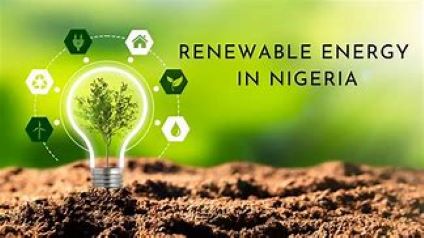
Top 10 Alternative Electricity Solutions for Nigerians Facing Power Instability
In Nigeria, where stable electricity remains a persistent challenge, alternative power sources are becoming essential for many households and businesses. With frequent power outages and grid failures, finding reliable and sustainable energy solutions is crucial. As the national power grid struggles to meet demands, exploring diverse energy options can offer both stability and independence. Here are ten alternative power sources that Nigerians can consider to ensure a consistent energy supply:
-
Solar Power
Nigeria enjoys approximately 7 hours of sunshine each day, making solar power an excellent choice for many. By investing in solar panels, individuals and businesses can harness this abundant resource to generate clean, renewable energy. Solar power systems can be tailored to various scales, from small home installations to large commercial setups, providing a dependable power source even when the grid fails.
-
Wind Power
The coastal regions of Nigeria have favorable wind conditions that can be utilized for wind power. Wind turbines can capture the kinetic energy from wind and convert it into electricity. This method of power generation is particularly effective in areas with consistent wind patterns, offering a renewable and environmentally friendly energy option.
-
Hydroelectric Power
Nigeria is home to numerous rivers and streams that have the potential to be harnessed for hydroelectric power. Small-scale hydroelectric systems can be developed to generate electricity from flowing water, reducing the country’s dependence on fossil fuels. By tapping into hydroelectric resources, Nigeria can enhance its energy security and contribute to a more sustainable energy future.
-
Biomass Energy
Biomass energy involves converting organic waste materials into electricity. This process not only provides a renewable energy source but also helps in managing waste. Biomass energy can be derived from agricultural residues, animal manure, and other organic materials. Utilizing biomass can reduce the reliance on conventional energy sources and support waste-to-energy initiatives.
-
Geothermal Energy
Geothermal energy leverages the heat from beneath the Earth’s surface to produce electricity. Nigeria has geothermal potential that can be explored to generate reliable and sustainable energy. By developing geothermal power plants, the country can access a steady source of energy that is less affected by weather conditions compared to solar and wind power.
-
Kinetic Energy
Kinetic energy can be harnessed from moving objects such as rivers, oceans, or even traffic. Technologies that capture energy from these movements can convert it into electricity. This approach can be particularly effective in areas with significant water flow or high traffic volumes, offering an innovative way to generate power from everyday motion.
-
Thermoelectric Power
Thermoelectric power involves converting waste heat from various sources—such as industrial processes, engines, or even body heat—into electricity. By capturing and utilizing this otherwise wasted energy, thermoelectric systems can contribute to a more efficient energy use and provide additional power sources for regions experiencing power shortages.
-
Piezoelectric Power
Piezoelectric materials generate electricity when subjected to mechanical stress, such as vibrations or pressure. This technology can be used in various applications, from powering small electronic devices to integrating into infrastructure for generating energy from vibrations. Piezoelectric power offers a unique way to produce electricity from everyday movements and forces.
-
Animal-Powered Generators
Animal-powered generators convert the movement of animals into rotational energy, similar to how a bicycle pedal works. This traditional method of energy generation can be particularly useful in rural areas where animal power is readily available. By converting the kinetic energy of animal movements into electricity, this system can provide a sustainable and low-tech energy solution.
-
Micro-Hydro Power
Micro-hydro power systems are small-scale hydroelectric setups that generate electricity from low-velocity water flows. These systems are suitable for locations with small rivers or streams and can be used to provide power to individual homes or small communities. Micro-hydro power offers a reliable and consistent energy source, especially in areas where larger hydroelectric projects are not feasible.
By exploring and investing in these alternative energy sources, Nigerians can reduce their reliance on unstable power grids and fossil fuels. These sustainable options not only provide a more reliable energy supply but also contribute to environmental conservation and climate change mitigation. Embracing a diverse range of energy solutions can help ensure a stable and sustainable future for Nigeria’s power sector.




Add comment